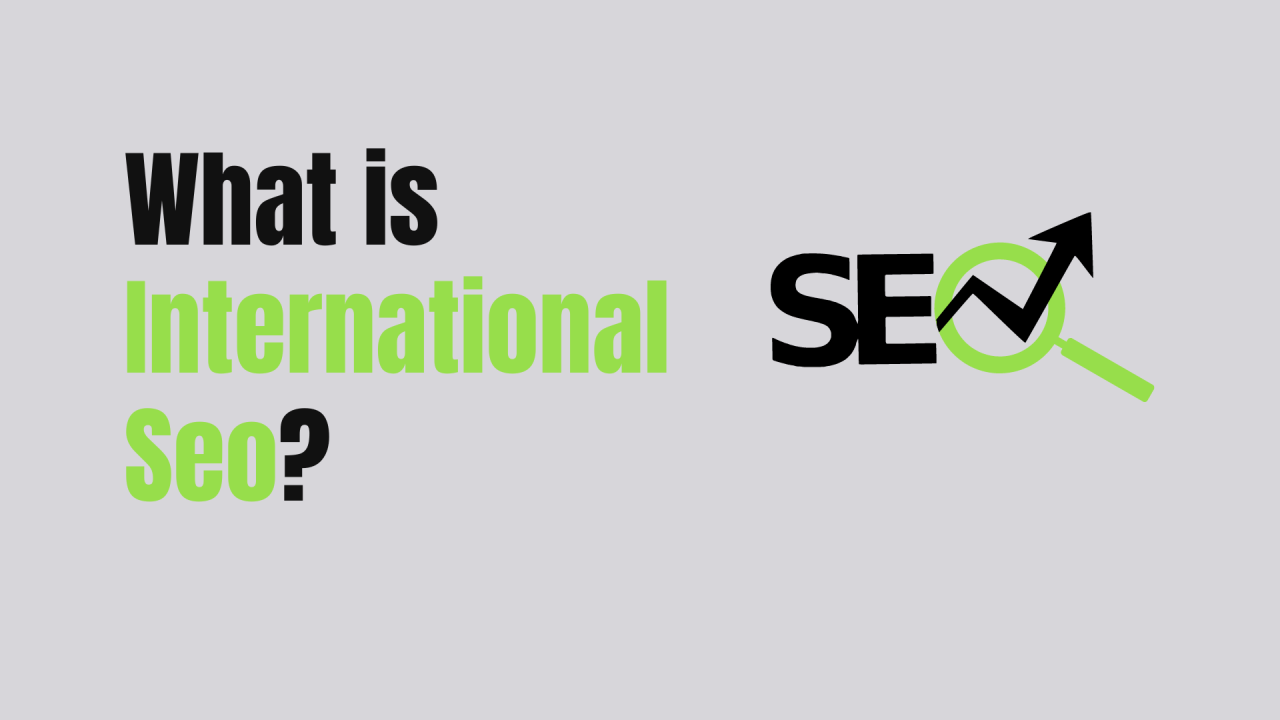Browsing the Digital Landscape: Leveraging International Search Engine Optimization for Cross-Border Success
In today's interconnected electronic world, businesses are progressively looking beyond borders to take advantage of global markets. Leveraging search engine optimization (SEARCH ENGINE OPTIMIZATION) techniques customized for global audiences is critical for accomplishing cross-border success. The intricacy of navigating the digital landscape on an international scale demands a nuanced approach, from understanding the basics of International SEO to executing geotargeting and multilingual search phrase approaches. As companies strive to broaden their reach and visibility throughout different territories, optimizing web site structures and checking cross-border performance become crucial elements of an effective global search engine optimization strategy.
Comprehending International Search Engine Optimization Fundamentals
Navigating the intricacies of global Search engine optimization calls for a strong understanding of basic concepts to effectively expand on the internet exposure throughout boundaries. One critical facet of global Search engine optimization is recognizing the value of localization.
Additionally, having a clear understanding of geo-targeting is vital. This involves showing to online search engine the specific nations or regions a web site is targeting. Applying hreflang tags is one method to communicate this details, guaranteeing that the appropriate variation of a website shows up in the search results page for an individual in a particular place.
Moreover, comprehending the influence of neighborhood search engines and social media platforms is crucial for global SEO success. While Google is dominant in many areas, countries like China have their own search engines like Baidu, requiring customized techniques for each platform to make best use of on the internet presence (International SEO).

Targeting Multilingual Keyword Techniques
Developing multilingual key phrase strategies is crucial for efficiently getting to diverse worldwide target markets and optimizing on-line visibility throughout different linguistic areas. When targeting multilingual keyword approaches, it is critical to conduct extensive research study to recognize the specific search terms and phrases made use of by the target audience in each linguistic region. This involves not only converting search phrases however additionally thinking about cultural nuances, local languages, and search trends special to every target audience.
To develop an effective multilingual key phrase strategy, it is essential to prioritize relevance and search intent. Key phrases should align with the material on the web site and reverberate with the social context of the target audience. Using tools such as Google Key Words Planner, SEMrush, or Ahrefs can help recognize high-performing keyword phrases in different languages and examine their search volume and competition degree.
In addition, tracking and analyzing the performance of multilingual key phrases regularly is necessary for maximizing and fine-tuning the approach gradually. By constantly adjusting to modifications in search behavior and trends, companies can improve their online visibility and attract more worldwide traffic to their description internet sites.
Carrying Out Geotargeting and Hreflang Tags
When intending to improve international search engine optimization techniques, including geotargeting and hreflang tags is vital for enhancing website exposure throughout different areas. Geotargeting involves customizing content to details locations, making certain that customers in various locations receive appropriate information. By implementing geotargeting, companies can boost their local search positions and attract region-specific website traffic.

Optimizing Internet Site Framework for Global Exposure
To additionally boost worldwide SEO approaches past geotargeting and hreflang tags, enhancing the internet site structure is necessary for attaining worldwide visibility and maximizing reach throughout different regions. A well-structured site not just improves user experience yet additionally assists in search engine crawlers in understanding the content and context of the website.
Moreover, producing language-specific subdirectories or subdomains can assist online search engine deliver the ideal version of the web site to users based upon their language preferences, additionally boosting the general user experience. Furthermore, enhancing link structures to include relevant key phrases and geotargeted terms can improve the site's exposure in various areas. By structuring the site successfully for global audiences, organizations can enhance their chances of bring in international web traffic and Discover More broadening their reach across boundaries.

Monitoring and Assessing Cross-Border Efficiency
Effective monitoring and studying of cross-border performance is essential for reviewing the success of international search engine optimization techniques and recognizing opportunities for renovation in international reach and presence. By closely tracking essential efficiency indicators (KPIs) throughout various markets, organizations can obtain useful understandings right into the performance of their cross-border search engine optimization efforts. Keeping an eye on metrics such as natural website traffic, keyword rankings, conversion rates, and bounce rates can supply an extensive view of just how well a website is doing in different regions.
By comparing efficiency throughout different countries, regions, or languages, firms can have a peek here identify effective approaches and localize web content to much better provide to certain target audiences (International SEO). Routine evaluation of SEO efficiency on an international range ensures that firms can adapt their strategies quickly to capitalize on arising chances and maintain a competitive side in international markets.
Final Thought
Finally, international search engine optimization plays a critical function in achieving cross-border success by enhancing sites for global presence, targeting multilingual search phrase techniques, applying geotargeting and hreflang tags, and checking cross-border performance. By comprehending the basics of worldwide SEO and maximizing internet site structures accordingly, organizations can efficiently reach and involve with their target market across various areas and languages. This calculated strategy is essential for increasing market reach and driving online growth in today's digital landscape.